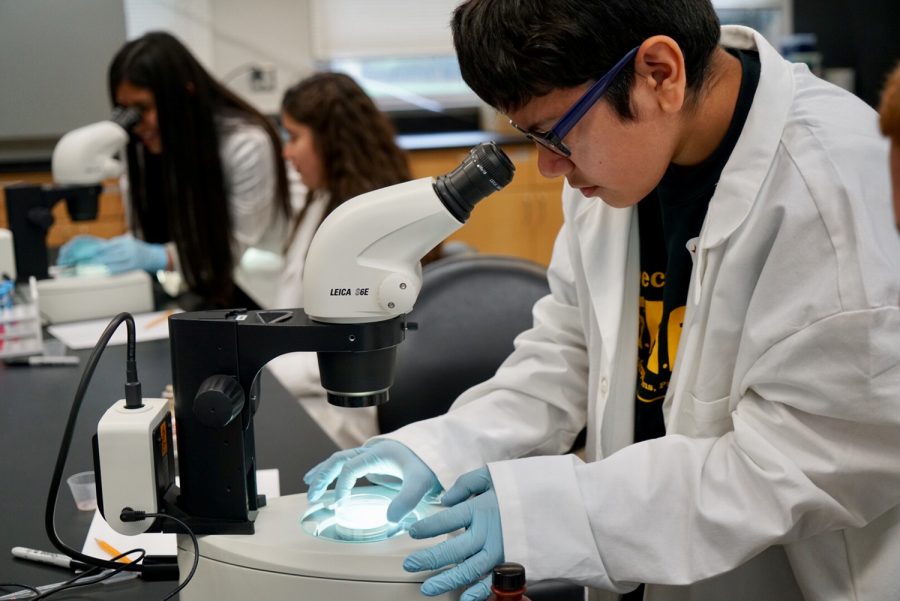Project HOPE celebrates 10 years at Education College
Project HOPE is in its 10th year at the UI College of Education, and it continues to expand on inspiring minority and low-socioeconomic middle-school students to check out health-care professions.
February 18, 2019
For 10 years at the UI College of Education, Project HOPE has provided a STEM-based curriculum intervention for minority and low-socioeconomic middle school students to be exposed to healthcare professions.
Project HOPE involves a group of graduate students in the College of Education and Saba Ali, the founder of Project Hope and associate dean for research in the education school. Together, they use their knowledge to help students better understand the opportunities they have.
Ali described the project as a six-week intervention with career exploration for students in the eighth grade.
RELATED: College prison program to bring undergrads and inmates together
“The students go through different labs on the UI campus and study different things that they are interested in,” Ali said. “The collaboration portion is important for two reasons, one being the community collaboration with the school districts and the other being collaboration with all of the colleges on our campus.”
Ali described the last 10 years as a large period of growth for the program.
“When we initially began the program, we started with West Liberty,” Ali said. “We were able to expand and serve other schools and communities. Periodically, we have about seven schools a year we touch base with.”
Ali stressed that the program’s growth has derived from tailoring the program to the communities’ needs.
“One size fits all doesn’t always work,” said Ali. “We try to understand how different communities respond to this program and how different career fields can affect these students.”
Ali stressed how highly she thinks of the graduate students involved and their dedication to implementing the program.
Enrique Smith, a graduate student member of Project HOPE, said he has enjoyed helping the communities the team has been able to support.
“We go to the schools and do week-by-week intervention programs,” he said. “With their experiences and knowledge of their own towns, we show them that there are other options outside of them.”
The intervention works to solve problems in the communities, he said.
“Everybody goes through their own roadblocks,” Smith said. “We present these roadblocks in ways to show them that it is possible to overcome things that you might not expect to come. However, you can adapt and make a career out of whatever you really want to do.”
Yeji (Sophia) Son, another member of the team, said the program has not really allowed the team to connect one-on-one with students. However, the program has allowed them to develop trust and relationships with larger community.
“People assume Iowa is a rural, white state,” Son said. “However, there are a lot of people of color in the state. You can see in our project, that many of our team members are people of color. I am really happy to bring my presence into a school setting with diverse populations and give them the opportunity to pursue a career.”



